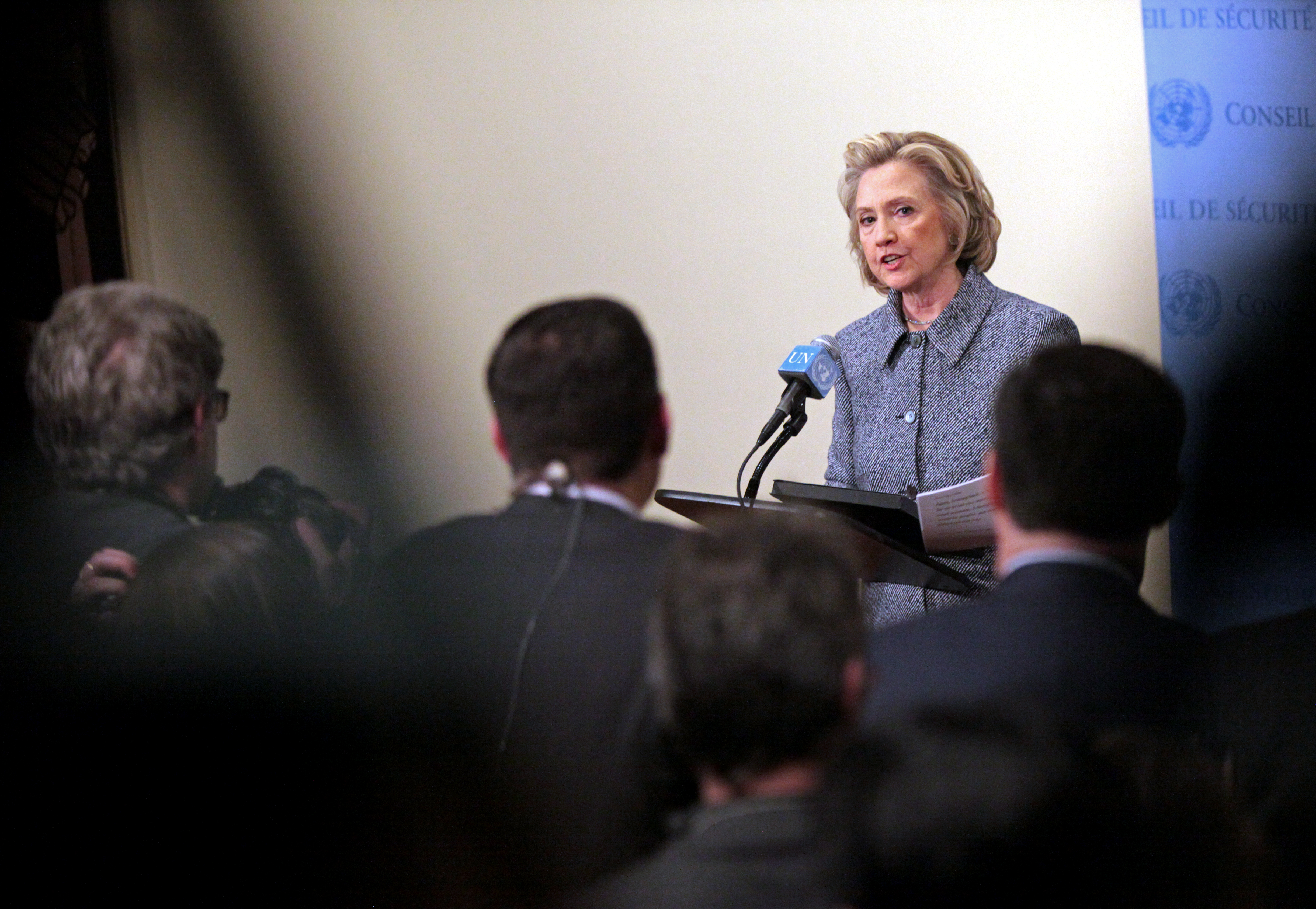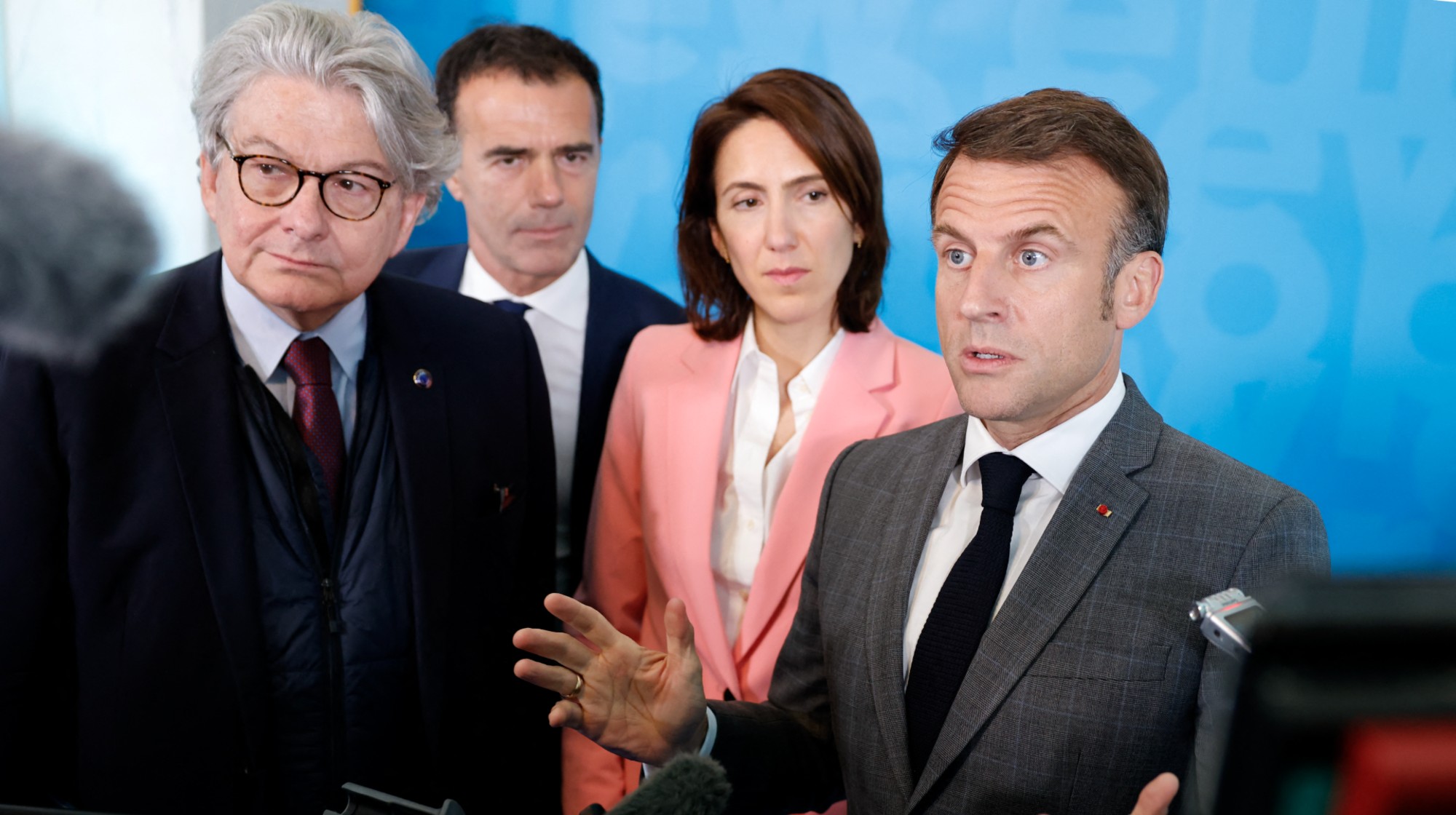The media already bungled Hillary's 'emailgate'
This is why the former secretary of state can't stand the press


Hillary Clinton found herself in a familiar place on Tuesday: amid a gaggle of excited reporters eagerly shouting questions at her about a matter they thought was of the highest importance and she thought was absurdly trivial. If this is the first Clinton controversy of the 2016 campaign, it has a meta quality about it: since no one knows if there's anything problematic (let alone incriminating) of substance in her emails themselves, we're left talking about how we talk about it.
At this early stage, that can be an important conversation to have. I've written some very critical things about Clinton, both in the past and with regard to this issue; most particularly, on Monday I wrote this piece arguing that she owes her liberal supporters a campaign worthy of all she and her husband asked of them over the years. And since the presidential race is just beginning, this is a good opportunity for the reporters who will be covering her to do some reflection as well, about where they and their colleagues went wrong in the past and how they can serve their audiences better in the next year and a half.
You can't understand Hillary Clinton's perspective without understanding what happened in the 1990s, and the media transformation that was going on while Bill Clinton was president. From the first moments of that presidency, Clinton's opponents were convinced he was corrupt to the core. They assumed that if they mounted enough investigations and tossed around enough charges, something would stick and Clinton would be brought down. If you think the endless Benghazi investigations are ridiculous, you should have been around then; if Bill Clinton wore the same tie two days in a row, Republicans would hold a week's worth of hearings to investigate what he was covering up.
The Week
Escape your echo chamber. Get the facts behind the news, plus analysis from multiple perspectives.

Sign up for The Week's Free Newsletters
From our morning news briefing to a weekly Good News Newsletter, get the best of The Week delivered directly to your inbox.
From our morning news briefing to a weekly Good News Newsletter, get the best of The Week delivered directly to your inbox.
The media atmosphere in which this all occurred was profoundly different than it had been just a few years before. Conservative talk radio came into its own in the 1990s, providing Republicans both an outlet for their most outrageous charges and a goad to produce more of them. (When they won control of Congress in 1994, Republicans literally made Rush Limbaugh an honorary member of their freshman class). Fox News debuted in 1996, in time for the impeachment crisis of 1998. The previously leisurely news cycle accelerated rapidly, and nothing fed it like scandal.
While the Clintons bear responsibility for getting many of those scandals going with questionable decision-making or behavior, it's also true that the mainstream media made huge mistakes during that period by treating every Republican charge, no matter how ludicrous, as though it was worthy of a full-scale investigation splashed across the front page. Again and again, they reacted to the most thinly justified accusations as though the next Watergate or Iran-Contra was at hand, and when it turned out that there was no corruption or illegality to be found, they simply moved on to the next faux-scandal, presented no less breathlessly.
That past — and journalists' failures to reckon with it — are still affecting coverage today. When this email story broke, how many journalists said it was important because it "plays into a narrative" of Hillary Clinton as scandal-tainted? I must have heard it a dozen times just in the past week.
Here's a tip for my fellow scribes and opinionators: If you find yourself justifying blanket coverage of an issue because it "plays into a narrative," stop right there. That's a way of saying that you can't come up with an actual, substantive reason this is important or newsworthy, just that it bears some superficial but probably meaningless similarity to something that happened at some point in the past. It's the updated version of "out there" — during the Clinton years, reporters would say they had no choice but to devote attention to some scurrilous charge, whether there was evidence for it or not, because someone had made the charge and therefore it was "out there."
A free daily email with the biggest news stories of the day – and the best features from TheWeek.com
"Narratives," furthermore, aren't delivered from Mt. Sinai on stone tablets. They're created and maintained by journalists making decisions about what's important and how different issues should be understood. If you're going to tell us that a new issue "plays into a narrative," you ought to be able to say why there's something essentially true or significant about that narrative.
To be clear, I'm not saying reporters shouldn't aggressively investigate Hillary Clinton, when it comes to her tenure at the State Department, her time in the Senate, her activities as a private citizen, or anything else. They absolutely should, just as they should look into all candidates — that's their job. She wants to be president, and the public needs to know as much as possible about who she is and what she would do if she gets to sit in the Oval Office.
But as they do that, they should exercise their considered news judgment, just as they do every day on every other topic. They should apply similar standards to all the candidates; if it's important that Clinton used a private email account while at State, then it must be equally important that other candidates have used private emails for work, and they should be subject to as much scrutiny as she is. When a new revelation or accusation emerges, the questions reporters should ask themselves include: Is there evidence for this? What's the context in which it took place? How does it bear on the presidency? How can I present it to my audience in a way that makes them smarter and better informed?
Any reporter could come up with a dozen others. But "Does this play into a narrative?" ought to be the last question they ask. As I wrote about Hillary Clinton, there are ways in which she owes her supporters better than what they've gotten from her in the past. But that's only half the story. The news media owes their readers, listeners, and viewers better than what they got, too.
Paul Waldman is a senior writer with The American Prospect magazine and a blogger for The Washington Post. His writing has appeared in dozens of newspapers, magazines, and web sites, and he is the author or co-author of four books on media and politics.
-
 ‘Care fractures after birth’
‘Care fractures after birth’instant opinion Opinion, comment and editorials of the day
-
 Shots fired in the US-EU war over digital censorship
Shots fired in the US-EU war over digital censorshipIN THE SPOTLIGHT The Trump administration risks opening a dangerous new front in the battle of real-world consequences for online action
-
 What will the US economy look like in 2026?
What will the US economy look like in 2026?Today’s Big Question Wall Street is bullish, but uncertain
-
 Bari Weiss’ ‘60 Minutes’ scandal is about more than one report
Bari Weiss’ ‘60 Minutes’ scandal is about more than one reportIN THE SPOTLIGHT By blocking an approved segment on a controversial prison holding US deportees in El Salvador, the editor-in-chief of CBS News has become the main story
-
 Has Zohran Mamdani shown the Democrats how to win again?
Has Zohran Mamdani shown the Democrats how to win again?Today’s Big Question New York City mayoral election touted as victory for left-wing populists but moderate centrist wins elsewhere present more complex path for Democratic Party
-
 Millions turn out for anti-Trump ‘No Kings’ rallies
Millions turn out for anti-Trump ‘No Kings’ ralliesSpeed Read An estimated 7 million people participated, 2 million more than at the first ‘No Kings’ protest in June
-
 Ghislaine Maxwell: angling for a Trump pardon
Ghislaine Maxwell: angling for a Trump pardonTalking Point Convicted sex trafficker's testimony could shed new light on president's links to Jeffrey Epstein
-
 The last words and final moments of 40 presidents
The last words and final moments of 40 presidentsThe Explainer Some are eloquent quotes worthy of the holders of the highest office in the nation, and others... aren't
-
 The JFK files: the truth at last?
The JFK files: the truth at last?In The Spotlight More than 64,000 previously classified documents relating the 1963 assassination of John F. Kennedy have been released by the Trump administration
-
 'Seriously, not literally': how should the world take Donald Trump?
'Seriously, not literally': how should the world take Donald Trump?Today's big question White House rhetoric and reality look likely to become increasingly blurred
-
 Will Trump's 'madman' strategy pay off?
Will Trump's 'madman' strategy pay off?Today's Big Question Incoming US president likes to seem unpredictable but, this time round, world leaders could be wise to his playbook
